The decision to hire a Chief Financial Officer (CFO) isn’t always an easy one, especially if you run a small to medium-sized business with a limited budget. Yet, a good CFO can play a pivotal role on your management team and provide the financial guidance you need to fuel growth. Let’s explore what to look for in a CFO, how the role differs from others in your organization, and your options for hiring one. But first, we’ll define what the CFO actually does.
What is a CFO and What Do They Do?
For most of the 20th century, the role of the CFO didn’t exist in many organizations. Instead, the company’s Financial Manager, as the position was often called, created the company budget, kept the books, and paid the company’s taxes. Financial strategy, reporting, and government regulations played a much smaller role than they do today, so there was no reason to expect strategic advice from the financial department.
That time has long since passed.
Financial management of today’s corporations is more complex thanks to expanded regulations, reporting requirements, robust risk management practices, and the need to oversee relationships with investors, especially for public companies. Thus, in addition to running the organization’s financial team, the CFO is now seen as a trusted advisor who provides strategic business analysis and direction to the CEO, President, and other C-suite executives.
The No-BS Financial Playbook for Small Business CEOs
Are you tired of making costly financial mistakes? Stop guessing and start growing. Learn how to create a scalable and valuable company while minimizing risk with this playbook from a serial entrepreneur who has been in your shoes.
What Skills Should a CFO Have?
CFOs oversee all the financial operations of a company, namely accounting and financial reporting. Yet their role is a very strategic one because they also manage operations processes and drive the planning cycle. Since they are responsible for all aspects of financial matters and financial decision-making, the ideal CFO candidate will have a mix of the following skills:
Technical skills
A CFO should certainly be able to “crunch numbers” and be transactional, but they must also be analytical and a big data wizard. That is to say, when considering what to look for in a CFO, keep in mind that being a Microsoft Excel guru is great, but it won’t help much if you can’t make the numbers relate to the bigger picture of what’s going on inside the company. The ability to gain key insights from your financial statements and to use those insights to drive sound financial decisions is what makes the CFO role so powerful.
Leadership skills
As a senior leader, the CFO needs to be able to build and manage a finance team while developing strong relationships with internal and external customers. Making sure you have the right people in place with clear talent acquisition and retention strategies should be a priority so you can build a thriving, forward-looking culture within the company.
Once the team is in place (or at least in progress), a CFO can move on to relationship building. Ideally, they will be able to navigate a mix of communication styles and will know how to come across as assertive and confident but not aggressive.
Communication skills

Understanding communication styles is just one part of the communication skills a CFO should possess. Many times, in small to medium-sized businesses, the CFO becomes a spokesperson for the company. For example, when publishing a quarterly report, they may need to explain the company’s performance in context of the bigger picture if the CEO is not available. Finance leaders may also be called upon to give speeches and take part in panels or forums.
It’s equally important that CFOs communicate effectively with their staff. They need to set clear priorities, keep everyone motivated, and ensure that their work is aligned with the company’s mission, strategy, and objectives.
Human Resource Infrastructure 360°™
Don’t let costly human resource issues creep up on you. Learn about the 5 components of HR Infrastructure 360°™ - our proprietary framework for building and supporting your team.
Risk management skills
Of all the skill sets a CFO can have, managing risk is something that should undergird all others. There are all sorts of risks inherent to doing business. They come from disruptive technology, competitors, cost control measures, or even your efforts to be resilient against going out of business.
A good CFO will be able to identify and mitigate these risks. They will help the CEO and others on the leadership team understand their risk tolerances and boundaries – especially when it comes to managing finances.
Problem-solving skills
One of the best ways to manage risk is to be able to identify and solve issues before they cause bigger than necessary disruptions to your daily operations. Therefore, your CFO should have a strong grasp of what goes on each day and the operations skills necessary to step in as a Chief Operating Officer (COO), even though it’s not their primary role.
Managing data about your company’s non-financial performance is one such example. Reliable data is essential to business operations, so a strong CFO will know how to spot and address problems before they spin out of control.
Strategy and innovation skills
Another key financial leadership trait is the ability to spot opportunities and drive change – adapting the organization’s business model to new technologies and markets. This is an advanced skill that a seasoned CFO will be more likely to bring to the table as it is dependent upon broad industry knowledge and the application of metrics and data they can trust.
Finding ways to finance such initiatives requires creativity. Relying entirely on return on capital, return on investment, P&L statements, balance sheet valuations, or other traditional measures of success won’t be enough. But a strong CFO will be able to identify needs, set clear goals, and implement impactful, long-lasting changes to daily operations – not just making changes for the sake of change.
If this list of skills sounds overwhelming for one person, just realize they are on a continuum. Some of these skills may already exist in a potential or future CFO currently on your team, while others can be added to your professional development plans. Or, if your needs are more urgent, you may need to embark on an outside search.
How Does the CFO Differ from Other Financial Roles?
The primary finance function of a CFO is fundamentally different than the CEO, who sets the overall vision and strategic direction for the company. It also differs from the COO, who is responsible for practical operations and day-to-day processes. Yet the CFO needs to have a strong grasp of each of these functions as they will provide financial advice that affects all areas of the business.
It’s the role of the Controller vs CFO that can be more confusing. The important thing to remember here is that the controller (or accounting manager) tends to be more technical and tactical in nature. Their main job is to make sure the company’s books and records are in order. Although the CFO should be well versed in these skills, their job is to rise above the day-to-day and take a big-picture view.
The Point When You Realize You Really Do Need a CFO

Small to midsize companies may not need a full-time CFO from the start. Depending on your business model, a bookkeeper, accountant, or CPA may be sufficient for some time. But when you begin to ask questions these resources can’t answer, it might be time to seek executive-level advice. Questions like:
- Am I in a strong enough financial position to buy another business or expand into a new market?
- If not, what do I need to do to get ready to raise capital, and how much do I need?
- Do I have the right business systems and processes in place to support my growth plans?
- How can I prepare an exit plan that supports my financial goals and protects my employees?
But, of course, this leads us to the next logical question.
How Much Does a CFO Make?
Another reason why you may have put off the decision to hire a CFO is the expense. CFOs typically command salaries comparable to other members of the executive team, sometimes even rivaling the CEO. With an average base of $225,000-$275,000 per year, not including bonuses, benefits, equity, and overhead, the total cost of a full-time strategic CFO can run approximately $300,000-$400,000 each year or more.
However, there is another option. Businesses that aren’t quite ready or who can’t afford a full-time CFO can work with a fractional CFO. Also known as an outsourced CFO, a fractional CFO can work with you part-time to solve financial problems or provide long-term strategic advice. That can allow you to delay the decision to hire a full-time CFO until you’re truly ready.
Check out our full-time vs fractional CFO calculator to do the math for yourself.
Final Thoughts on What to Look for in a CFO
The CFO will serve as a trusted advisor to the CEO and others on the management team, so it is important to take your time seeking out the right talent, fit, and financial arrangement that works for you.
One of the best interim options is to work with a fractional CFO. Fractional CFOs can provide the financial expertise you need at a lower cost until you’re ready to hire someone full-time. At the CEO’s Right Hand, we provide a full range of finance and accounting services, including part-time CFOs. Please contact us directly to discuss your needs.
Editors Note: CFO salary data was updated in October 2024.




